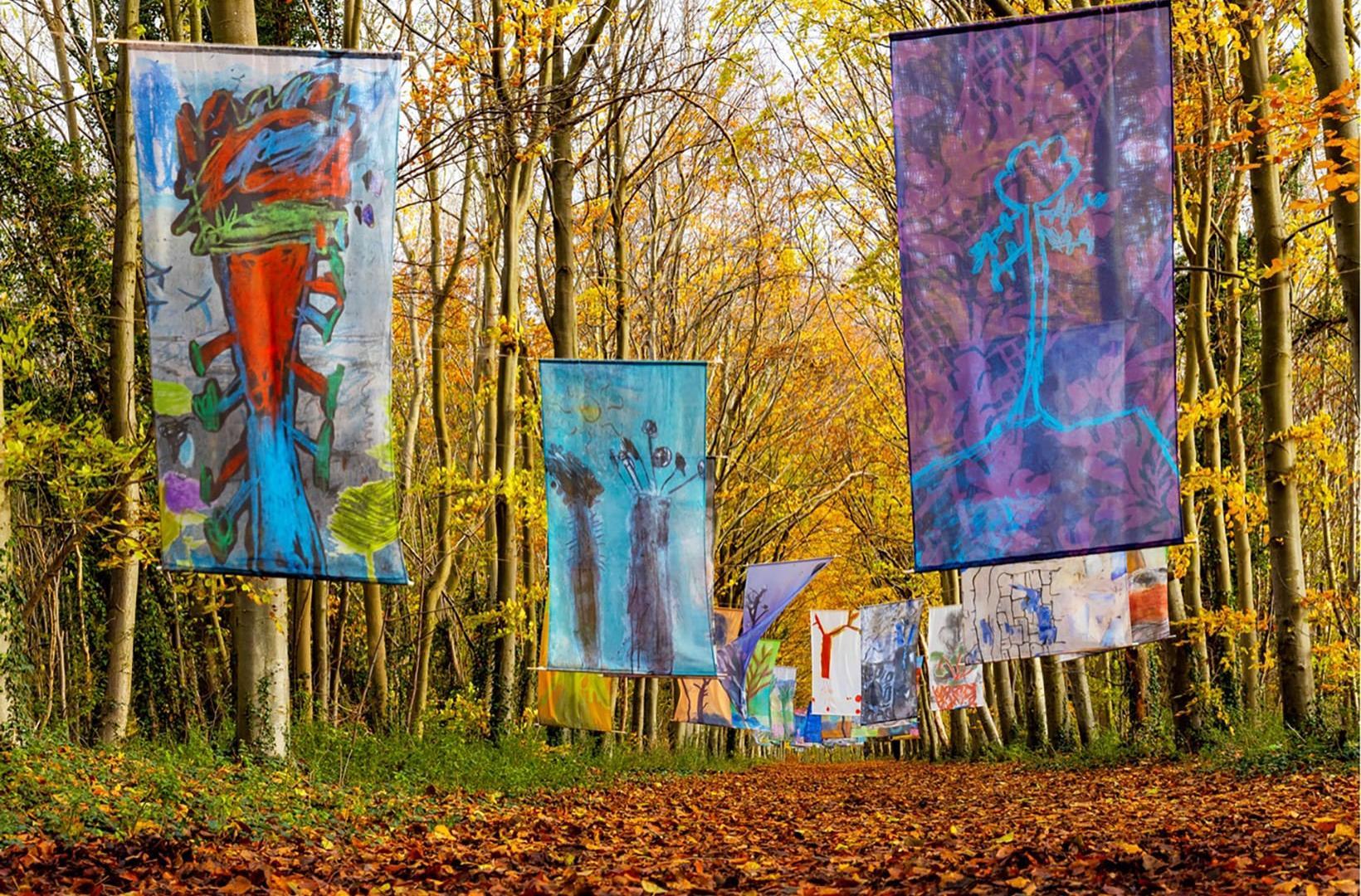Whiteknights Studio Trail plays its role in the Reading Climate Festival 2023
Whiteknights Studio Trail (WST) is back! Now in its 23rd year – taking place over the weekend of Saturday 10 and Sunday 11 June with makers and artists welcoming visitors to their open studios and venues.
All venues are open on both days between 11am and 6pm. Parking is available at the University of Reading Campus and the trail is accessible from various Reading bus routes too, with the aim of making this year’s WST as accessible and potentially green as possible, as it aims to encourage people to car share and take public transport where practical.
There are 37 artists, exhibiting from their studios and venues (27 in total) sharing their work in a wide-range of media including: painting, printing, glass making, jewellery, sculpture, photography, carpentry, sound and video. More on each artist and their work can be found on the Trail’s website, www.studiotrail.co.uk
The website includes a map to find who is where and what is going on at that venue.
With a distinctly ‘green’ theme for this year’s Whiteknights Studio Trail, several artists, over a range of media and materials are keen to show how they respond to the climate crisis and want to inspire others to ‘do their bit’ to tackle climate change.
Two of these artists are at Venue 5 (The Museum of English Rural Life) – Nina O’Connell with her colourful batik paintings and Mark Ripley with beautiful sustainable furniture.
Nina's contemporary batik artwork is currently inspired by the inherent beauty in the natural world and a creative attempt to convey and express her concern for the worldwide Climate crisis. She works with the experimental qualities of wax resist batik which allows for both a degree of precision and the excitement of unexpected outcomes with the vibrant dyes.
Nina O’Connell, said: “The result can often make my heart sing. My love of experimentation and unintentional outcomes, speaks to me as an echo of the current state of affairs in the world.”
Mark Ripley, also at Venue 5, has a degree in furniture design, Mark has run his own workshops since the 1980's. His work is inspired by English vernacular furniture covering a wide range of domestic furniture, installations and pieces for public spaces. Mark is now focussing on chair making and smaller commissions from his Hampshire studio.
Mark says of his work, “My work is inspired by the English vernacular tradition of woodworking. This includes furniture but also buildings, boat building and smaller objects. These are conceived for everyday use and have evolved a design aesthetic that doesn't age. The longevity of these artifacts is displayed wonderfully at the Museum of English Rural Life. Valuing the qualitative aspects of the things we use fosters a low consumption lifestyle. Coupled with this is the wood itself. I have always bought sustainably sourced timber and the materials will be replaced two to three times at least in the lifetime of the object.
“Making things in wood is also a carbon sink which reduces the emissions of allowing trees to die and rot or burning dead wood. My studio is simply equipped and requires very little energy to run. A lifelong commitment to these principles is a personal contribution to a sustainable way of being’”
Other climate change focussed venues include ‘The Butterfly Effect’ which is a community art installation in response to climate change using up cycled materials. The beautiful butterflies will be on view Venue 9 in Jenny Halsted’s Garden. Another is ‘Hope for the Planet’ at venue 14, hosted by Jonathan Dewsbury, one the UK’s Top 100 environmental professionals. He has brought together a range of creatives in an exhibition to show the importance of youth voice and hope in the battle against climate change. It does this through a collection of projects:
- ‘Fantastical Maps and hangings from the Fantastical Forest’ co-created by arts and well-being charity Cambridge Curiosity and Imagination and young children, and
- A unique project called “Phyto-Forms” by Natasha V Moody which takes visual cues from early 20th century spirit photography to capture the spirit of plants; and
- Sample of works from young and upcoming artist from Manchester School of Art who express their views on climate change through native language, video and sculpture.
More information is available on our website: www.studiotrail.co.uk or follow us on Instagram: #wstreadinguk or Facebook: Whiteknights Studio Trail



